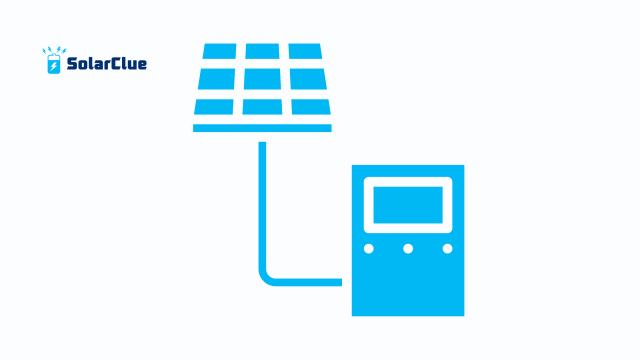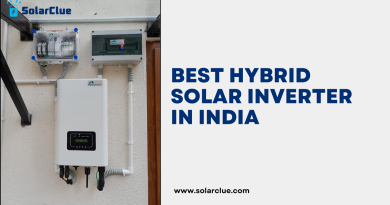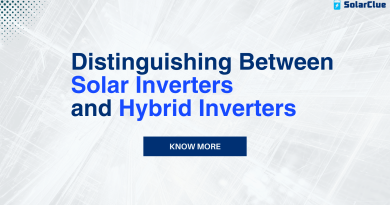Solar Inverter Buying Guide for Beginners
If you’re ready to harness solar power at home, choosing the best solar inverter for home is one of the most crucial decisions you’ll make. A solar inverter is the core of your solar power system—it converts the DC power from your panels into usable AC power for your appliances. This guide will help you understand everything you need to know to buy best solar inverter with confidence.
Table of Contents
- 1 What is a Solar Inverter and Why Is It Important?
- 2 Different Types of Solar Inverters
- 3 How to Choose the Best Solar Inverter
- 4 Best Solar Inverter Brands in India
- 5 Solar Inverter Price in India (2025)
- 6 Installation Tips for New Buyers
- 7 Maintenance and Troubleshooting
- 8 Benefits of Choosing the Right Solar Inverter
- 9 Real-Life Case Study
- 10 Government Incentives
- 11 Common Myths About Solar Inverters
- 12 FAQs
What is a Solar Inverter and Why Is It Important?
A solar inverter plays a vital role in your rooftop solar setup. Without it, the DC electricity generated by your solar panels would be unusable by standard household appliances. The inverter transforms that energy into AC electricity, manages power supply, and often communicates with your battery and the grid. Choosing the best solar inverter ensures optimal performance, safety, and energy savings.
Different Types of Solar Inverters
When choosing the best solar inverter for home, it’s important to understand the available types and their benefits:
1. String Inverters
Most common for Indian homes, they are cost-effective and connect a group of panels into a single inverter. Ideal for shadow-free rooftops.
2. Microinverters
These are installed on individual panels. They maximize energy output, especially useful if your panels face different directions or partial shading occurs.
3. Hybrid Inverters
Work with both solar panels and batteries. These are the best solar inverters for home if you want to store power for night usage or grid outages.
4. Off-Grid Inverters
Designed for locations not connected to the main grid. They’re battery-dependent and offer complete independence.
How to Choose the Best Solar Inverter

To buy best solar inverter, consider the following critical factors:
1. Inverter Capacity
Inverter size should match your solar panel output. For a 3kW system, get at least a 3kW inverter. Slightly higher capacity helps in managing load fluctuations.
2. Solar Inverter Efficiency
Look for inverters with at least 95% efficiency rating. High-efficiency inverters minimize energy loss during conversion.
3. Compatibility with Battery
If you’re planning for a battery now or in the future, choose a hybrid model. This ensures that your system is expandable.
4. Safety Features
Good inverters include protection against overload, short circuits, and overvoltage. MPPT (Maximum Power Point Tracking) inverters help extract maximum power.
5. Remote Monitoring
Modern inverters come with Wi-Fi modules or apps to track performance in real time. This helps you identify issues early and optimize output.
Best Solar Inverter Brands in India
Here are some trusted options for 2025:
Luminous Solar NXG Series
- Offers hybrid functionality
- Efficient for both grid-tied and off-grid usage
Microtek Solar Inverter
- Budget-friendly
- Reliable for small and medium households
Sukam Solar Inverter
- Offers advanced protection features
- User-friendly LCD display
Smarten Superb
- Highly rated for MPPT-based charging
- Compact design
Solar Inverter Price in India (2025)
Solar inverter price depends on capacity, type, and features:
| Capacity | Type | Price Range (₹) |
|---|---|---|
| 1 kW | String Inverter | ₹7,000–₹12,000 |
| 3 kW | Hybrid Inverter | ₹20,000–₹45,000 |
| 5 kW | Off-Grid | ₹40,000–₹70,000 |
Although a hybrid model is more expensive upfront, it offers longer-term value with storage compatibility.
Installation Tips for New Buyers
- Ensure your inverter is placed in a shaded, ventilated area.
- Mount it above ground level to avoid water damage.
- Keep it away from direct sunlight and dust.
- Use authorized technicians for installation to retain the warranty.
Maintenance and Troubleshooting
- Clean the air vents monthly.
- Keep track of output via app or LED indicators.
- Inspect wiring every quarter.
- Replace fuses if output suddenly drops.
Benefits of Choosing the Right Solar Inverter
- Maximized energy yield
- Long equipment lifespan
- Seamless switch between grid and solar
- Better compatibility with net metering
- Safe and stable power flow
Real-Life Case Study
Mr. Sharma from Nagpur installed a 5kW solar system with a Smarten Superb hybrid inverter. With four ACs and frequent outages in summer, the system now runs all essentials and stores energy for night use. He noticed a 60% drop in monthly electricity bills and received local subsidies as well.
Government Incentives
Under MNRE and state-level policies, grid-tied inverters are eligible for subsidies if part of an entire solar kit. Always ask your vendor to help you claim benefits.
Common Myths About Solar Inverters
Myth 1: Bigger is always better.
Truth: Oversizing wastes money and may affect efficiency.
Myth 2: Inverters don’t need maintenance.
Truth: Regular inspection prevents long-term issues.
Myth 3: All inverters work with batteries.
Truth: Only hybrid and off-grid models do.
FAQs
1. Which is the best solar inverter for home use?
Luminous NXG and Smarten Superb are highly recommended.
2. What is the average solar inverter price in 2025?
Between ₹7,000 to ₹70,000 depending on capacity and features.
3. Can I upgrade to a hybrid later?
Not always. Choose a hybrid upfront if future-proofing matters.
4. Is installation complicated?
No, professionals can set it up in 1–2 hours.
5. How do I monitor my inverter?
Most modern inverters offer mobile apps or LED displays.
Choosing the best solar inverter for home is the key to unlocking long-term solar savings and uninterrupted power. If you’re planning to upgrade your energy game, explore reliable inverters and accessories at solarclue.com. For beginner tips, expert reviews, and buyer guides, dive into blog.solarclue.com—because when it comes to solar, starting smart makes all the difference.



